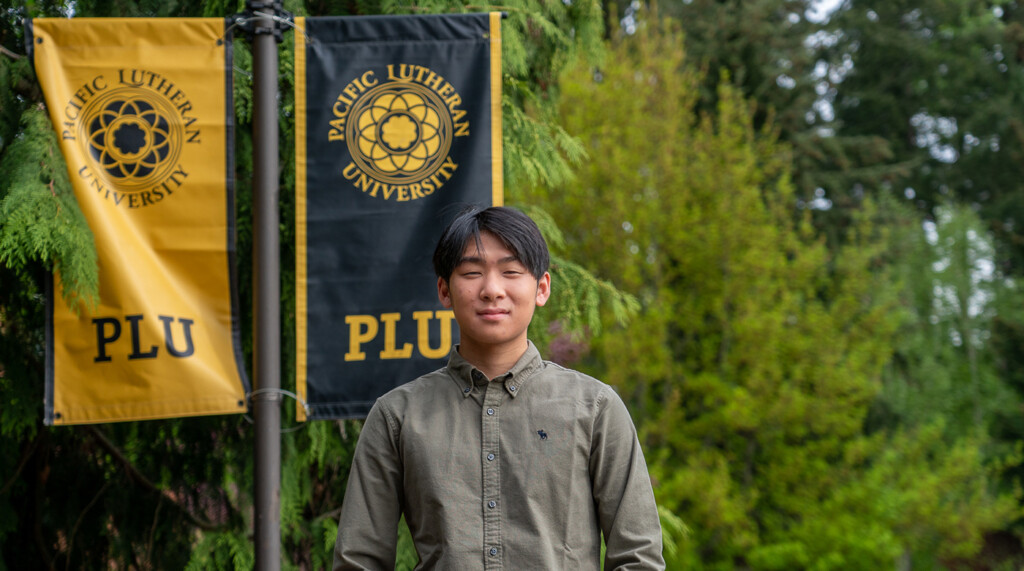Page 20 • (232 results in 0.036 seconds)
-

transitioned school online. I was also a commuter student, so I can’t speak much about campus life. With that said, my experiences at PLU have been wonderful. I’ve participated in several organic chemistry and biology labs and always felt that PLU had sufficient resources. Yeah, some money could be spent on buying better ring stands or heat plates, but I am very satisfied with the lab tools provided to the students. Professors are always willing to chat during office hours and happy to answer questions
-
the organic material present from the vegetated riparian zone. This material is a food source for other aquatic species and without restoration efforts would not be there (Streamkeeper’s Field Guide). Overall, restoration efforts at Clover Creek Reserve have benefited water quality in the area which is important for other downstream sites and the watershed as a whole! Supporting local restoration projects can help lessen the impacts of urbanization on the watershed. Since water is critical for
-

between the organic and the mechanical, combining an eclectic range of both classical and vernacular influences with a polyamorous harmonic language. A recipient of the 2018 Charles Ives Fellowship from the American Academy of Arts and Letters, Peter has received fellowships from Composers Now, Yaddo, MacDowell Colony, the Atlantic Center for the Arts, and the Virginia Center for the Creative Arts. He has been commissioned by American Chamber Winds (Radix Tyrannis, a concerto for Joseph Alessi
-
of Biology (2 semesters) General Chemistry (1 semester, some schools require 2 semesters) Organic Chemistry with laboratories (1 year) Mathematics – an appropriate level course (typically pre-calculus) General Physics with laboratories (1 year) Other courses often required may include: Microbiology Molecular Biology or Biochemistry
-
of Biology (2 semesters) General Chemistry (1 semester, some schools require 2 semesters) Organic Chemistry with laboratories (1 year) Mathematics – an appropriate level course (typically pre-calculus) General Physics with laboratories (1 year) Other courses often required may include: Microbiology Molecular Biology or Biochemistry
-
Experience the traditional fishing village of Charlotteville, Tobago, as it explores new directions in organic gardening, marine research, and sustainable tourism Learn More & Apply Questions? Reach out to Megan Grover (megan.grover@plu.edu) to learn more, as well as your study abroad office!
-
fieldsVisit WebsiteWWOOFProvides the opportunity to volunteer on a wide range of sustainable, organic farms around the worldVisit WebsiteTeach English AbroadTeach in Asia Japan (JET) Korea (EPIK) Thailand (Teach Thailand Corps) China (TeachAway)Teach in Europe France - TAPIF Spain - UCETAM Spain - Ministerio de educación Spain - Instituto Franklin (Masters degree + teaching) Austria - USTADifferent Locations Worldwide Fulbright Language Corps World Teach CIEE AISEC Geovisions
-
the structures of dienes contribute to their reactivity trends. Danielle Cox; Angela Rodriguez HinojosaA greener SN2: Substitution reactions of polar and nonpolar primary halides in water Substitution reactions are very important when building complex organic compounds. However, they are often performed in hazardous polar, aprotic solvents like dimethylformamide (DMF). By utilizing water as a solvent, we can adapt a greener method for SN2 reactions of primary halides. Previous student research
-
projects, everyone is tackling a relatively large and important goal.” Building better batteriesDean Waldow “I think it’s really cool that I can go home to my parents and say I am working on improving batteries and that has an actual reaction from them,” chemistry major Katie Gardiner ’18 said. Gardiner is one of the student researchers for Dean Waldow, professor of chemistry. She is working alongside Jacob Finney ’18 to build better, safer batteries. Last summer she conducted research in an organic
-
Research Society Fall Meeting (2006). “Colloidal Quantum Dots: Ligands and Light-Emitting Diodes” Andrea M. Munro and David S. Ginger oral presentation at the Organic Photonics and Electronics Topical meeting with the Optical Society of America (2006) invited. “Correlating Charging and Discharging Dynamics with Fluorescence Blinking in Single Quantum Dots” Andrea M. Munro and David S. Ginger poster presentation at the ACS Spring Meeting (2005). Quick Links Munro Research Group Main Page
Do you have any feedback for us? If so, feel free to use our Feedback Form.


